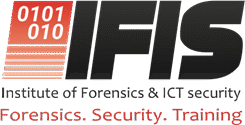Next Upcoming Event
21
January
2026
Investigation and Report Writing
EVENT DETAIL-
00
days
-
00
hours
-
00
minutes
-
00
seconds
January 2026
Investigation and Report Writing
An investigation is only as good as its report. If your report is weak, your evidence is useless.
21 Jan
All Day
February 2026
Investigation and Report Writing
An investigation is only as good as its report. If your report is weak, your evidence is useless.
18 Feb
All Day
Cybersecurity Essentials
Course Overview: Cybersecurity Essentials is a comprehensive foundational course designed to provide students with a solid understanding of the fundamental concepts, tools, and best practices needed to navigate the dynamic and rapidly evolving landscape of cybersecurity. Covering a wide array of topics, this course introduces students to network security, data protection, ethical hacking, risk management, and more. Students will learn to identify vulnerabilities, implement effective security measures, and respond to cyber threats through both theoretical lessons and practical exercises. By the end of the course, students will be equipped to safeguard information systems, ensure regulatory compliance, and contribute to building secure digital infrastructures in organizations. This course is an essential stepping stone for anyone pursuing a career in cybersecurity, which is becoming increasingly vital as cyber threats grow in sophistication. Course Objectives: Upon completion of this course, students will: Understand the key principles of cybersecurity, including the importance of confidentiality, integrity, and availability (CIA Triad). Be able to identify and mitigate various types of cyber threats such as malware, phishing, DDoS, and insider threats. Gain a strong foundation in network security, including firewall configuration, VPNs, and intrusion detection/prevention systems. Understand the basics of cryptography, encryption, and secure communication protocols. Learn endpoint security best practices, including antivirus tools, patch management, and endpoint detection. Familiarize themselves with key cybersecurity tools like SIEM, vulnerability scanning, and network monitoring tools. Understand identity and access management, including authentication, access control models, and multi-factor authentication (MFA). Be able to create and implement security policies, disaster recovery plans, and comply with industry regulations. Develop awareness of social engineering tactics and how to build a cybersecurity-conscious organizational culture. Explore emerging trends in cybersecurity, including cloud security, IoT security, and AI-driven security solutions. Course Requirements: No prior experience in cybersecurity is required. Basic knowledge of computer systems and networks is helpful but not mandatory. Access to a computer with an internet connection and the ability to install or use necessary tools (free versions of software will be provided). A keen interest in learning about cybersecurity concepts and practices. Accreditations: Upon successful completion of the course, students will receive a Certificate of Completion in Cybersecurity Essentials. The course may be eligible for Continuing Education Units (CEUs) or Professional Development Units (PDUs) depending on the accrediting institution. Examination and Award: Final Examination: The final exam will consist of both theoretical and practical components. Students will be assessed on their knowledge of core cybersecurity principles, the application of various security measures, and their ability to respond to cyber incidents. Hands-On Project: Students will complete a hands-on project, which includes tasks such as configuring a firewall, performing a vulnerability scan, and simulating a phishing attack. Examination Weights: Final Exam: 40% Hands-On Project: 40% Assignments and Quizzes: 20% Module 1: Introduction to Cybersecurity Topics: Definition and Importance of Cybersecurity Overview of Cyber Threats and Attacks Key Objectives: Confidentiality, Integrity, and Availability (CIA Triad) Cybersecurity Trends and Challenges Learning Outcomes: Understand the importance of cybersecurity in protecting digital assets. Gain familiarity with the CIA Triad and how it applies to security. Identify the current trends and challenges facing the cybersecurity industry. Module 2: Threat Landscape Topics: Types of Cyber Threats: Malware, Phishing, DDoS, Insider Threats, APTs Vulnerabilities and Exploits Risk Assessment Basics Learning Outcomes: Recognize common types of cyber threats and their impacts on organizations. Learn the basics of risk assessment and how to assess vulnerabilities in digital systems. Understand the role of exploits and how attackers use them to gain unauthorized access. Module 3: Fundamentals of Network Security Topics: Networking Basics: IP Addressing, Subnetting, Protocols (HTTP, HTTPS, FTP, SSH) Firewalls and IDS/IPS Virtual Private Networks (VPNs) Wireless Security Learning Outcomes: Understand basic networking concepts such as IP addressing and protocols. Learn about firewalls, IDS/IPS systems, and their role in securing networks. Gain knowledge of VPNs and wireless security protocols. Module 4: Cryptography Essentials Topics: Encryption and Decryption Symmetric vs Asymmetric Encryption Hashing (MD5, SHA-256) Digital Signatures and Certificates Public Key Infrastructure (PKI) Secure Communication Protocols (TLS, SSL) Learning Outcomes: Understand how encryption and decryption protect data confidentiality. Learn the differences between symmetric and asymmetric encryption. Become familiar with cryptographic hashing and its use in securing data. Understand the role of digital signatures, certificates, and PKI in cybersecurity. Module 5: Endpoint Security Topics: Secure Operating Systems (Windows, Linux, macOS) Antivirus and Antimalware Tools Patch Management and Software Updates Endpoint Detection and Response (EDR) Tools Learning Outcomes: Learn how to secure different operating systems and implement endpoint protection. Gain practical experience with antivirus tools and endpoint security measures. Understand the importance of software updates and patch management in preventing vulnerabilities. Module 6: Cybersecurity Tools and Techniques Topics: Security Information and Event Management (SIEM) Vulnerability Scanning and Penetration Testing Network Monitoring Tools (Wireshark, Splunk) Forensics Tools Learning Outcomes: Understand how SIEM tools aggregate and analyze security data. Learn about vulnerability scanning and how to identify security weaknesses in systems. Gain hands-on experience with tools like Wireshark for network monitoring and Splunk for security data analysis. Module 7: Identity and Access Management (IAM) Topics: Authentication Methods (Passwords, Biometrics, MFA) Authorization and Access Control Models Role-Based Access Control (RBAC) Single Sign-On (SSO) and Identity Federation Learning Outcomes: Learn about various authentication methods and how MFA enhances security. Understand authorization models such as RBAC and how they control access to systems. Gain knowledge of SSO and identity federation in managing user access. Click here to register
19 - 20 Feb
8:00 am - 6:00 pm
No event found!





